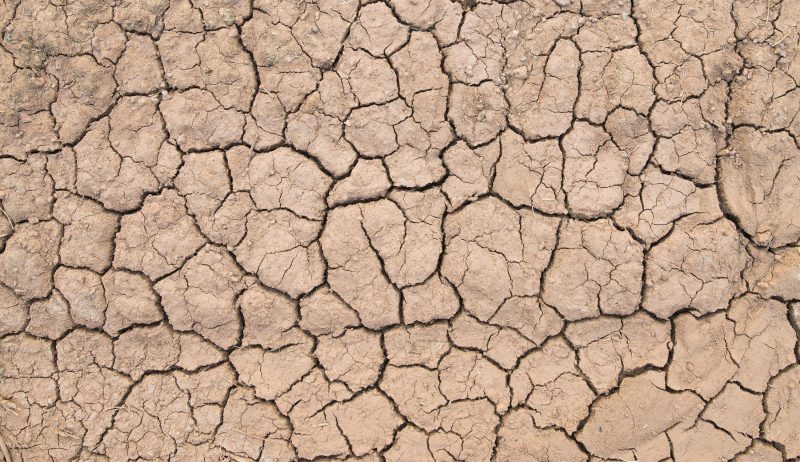1. Harsh Weather Can Be Your Skin’s Biggest Enemy
One of the most common culprits for dry skin is harsh weather conditions. Whether it’s the dry, cold air of winter or the scorching heat of summer, extreme temperatures can strip your skin of its natural oils and moisture, leaving it dry, flaky, and irritated.
To combat this, be sure to adjust your skincare routine based on the season. In colder months, opt for richer, more hydrating moisturizers to combat the dry air, while in the summer, lightweight, gel-based formulas can provide the hydration your skin needs without feeling heavy or greasy.
Additionally, don’t forget to protect your skin from the sun’s harmful UV rays, as sun damage can lead to premature aging and further exacerbate dryness.
2. Over-Exfoliation: When Less Is More
Exfoliating can be a great way to slough off dead skin cells and reveal smoother, brighter skin underneath. However, overdoing it can actually do more harm than good.
Exfoliating too frequently or using harsh exfoliants can strip your skin of its protective barrier, leading to increased dryness and sensitivity. Instead, opt for gentle exfoliants that won’t be too abrasive on your skin, and limit exfoliation to 1-2 times a week to avoid over-drying.
3. Hot Showers: A Common Culprit
While a long, hot shower may be relaxing, it can actually be detrimental to your skin’s health. Hot water strips your skin of its natural oils, leaving it dry and dehydrated.
To prevent this, opt for lukewarm water instead of piping hot temperatures when showering or washing your face. This will help retain your skin’s natural moisture and prevent it from becoming parched and irritated.
4. Improper Skincare Products: Not All Formulas Are Created Equal
Using the wrong skincare products can also contribute to dryness and irritation. It’s essential to choose products that are suited to your skin type and concerns, as using overly harsh or drying formulas can disrupt your skin’s balance.
If you have dry skin, look for products that are formulated with hydrating ingredients like hyaluronic acid, glycerin, and ceramides to help restore moisture and nourishment to your skin. Avoid products with alcohol, fragrances, or other potential irritants that can further dry out your skin.
5. Not Drinking Enough Water: Skin’s Best Friend
Hydrating your skin doesn’t just come from topical products – it also starts from within. Dehydration can manifest on the skin as dryness, flakiness, and dullness, so it’s crucial to drink an adequate amount of water to keep your skin hydrated and plump.
To ensure you’re getting enough water, aim to drink at least 8 glasses a day and consider incorporating water-rich foods like fruits and vegetables into your diet to further hydrate your skin from the inside out.
6. Ignoring Your Diet: What You Eat Matters
Your diet plays a significant role in the health of your skin. Consuming foods high in sugar, processed fats, and dairy can trigger inflammation in the body, which can manifest on the skin as dryness, acne, and other issues.
Opt for a balanced diet rich in antioxidants, vitamins, and minerals to support your skin’s health. Foods like fatty fish, nuts, seeds, and leafy greens can provide essential nutrients that help maintain your skin’s moisture barrier and overall health.
7. Skimping on Sunscreen: Sun Protection Is Non-Negotiable
Sunscreen is a non-negotiable step in any skincare routine, regardless of your skin type. UV rays can not only lead to sun damage and premature aging but also deplete your skin’s moisture levels, leaving it dry and vulnerable.
Make sure to apply a broad-spectrum sunscreen with at least SPF 30 daily, even on cloudy days or during the winter months. Reapply every two hours if you’re outdoors, and don’t forget to protect often neglected areas like your hands, neck, and ears.
8. Stress: Skin’s Silent Enemy
Stress can wreak havoc on your skin in more ways than one. When you’re stressed, your body releases cortisol, a hormone that can disrupt your skin’s natural balance and lead to dryness, sensitivity, and other issues.
Finding healthy ways to manage stress, such as exercise, meditation, or hobbies, can help alleviate its effects on your skin. Incorporating self-care practices into your routine can also promote relaxation and support your overall well-being, which is reflected in the health of your skin.
9. Not Getting Enough Sleep: Beauty Rest Is Real
Beauty sleep isn’t just a myth – it’s a crucial component of maintaining healthy, hydrated skin. During sleep, your body goes into repair mode, producing collagen and other essential proteins that support your skin’s structure and function.
Lack of sleep can disrupt this process, leading to dull, dehydrated skin and exacerbating existing skin concerns. Aim for 7-8 hours of quality sleep each night to allow your skin to regenerate and rejuvenate, so you wake up with a glowing, hydrated complexion.
10. Smoking And Alcohol: Skin’s Worst Enemies
Smoking and excessive alcohol consumption can wreak havoc on your skin’s health and appearance. Both habits deplete your body of essential nutrients, increase inflammation, and impair your skin’s ability to retain moisture, leading to dryness, wrinkles, and other signs of premature aging.
If you smoke, consider quitting to improve your skin’s overall health and appearance. Limit alcohol consumption and opt for hydrating, non-alcoholic beverages whenever possible to support your skin’s hydration and vitality.
In conclusion, maintaining hydrated, healthy skin is a multifaceted endeavor that involves a combination of lifestyle habits, skincare practices, and environmental considerations. By avoiding common pitfalls like harsh weather, over-exfoliation, hot showers, improper products, dehydration, poor diet, sun exposure, stress, lack of sleep, smoking, and excessive alcohol consumption, you can nurture your skin from the inside out and achieve a radiant, hydrated complexion. By being mindful of these factors and making conscious choices to prioritize your skin’s health, you can say goodbye to dry, thirsty skin and hello to a glowing, nourished visage.

